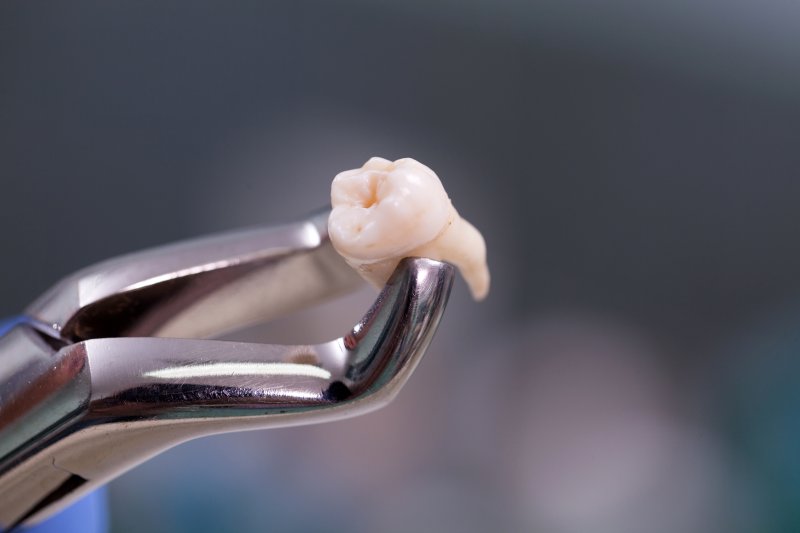Each of our 32 adult teeth help build our beautiful smile. Each of those teeth serve a specific purpose, helping us eat, talk, and present ourselves with confidence. However, whether due to a medical condition or an accident, there are various reasons why patients may need to get their teeth removed. Dentists usually prefer to treat and keep as much of the natural tooth intact as possible, but when that is not possible, there are several options for the patients, as well as several ways to remove them.
Tooth Extraction Types
When teeth are being taken out, they can be extracted simply. This type of extraction is only done on teeth that are visible in the mouth. The dentist will numb the area using local anesthesia to cause the patient as little pain as possible. Then, dentists will use tools such as dental forceps and a dental elevator to remove the problem tooth from the mouth with controlled force.
Dentists can also perform surgical extractions to remove problem teeth. This is only done when the tooth is not completely visible and cannot be easily accessed. Because of the invasiveness of this procedure, general anesthetic is provided under the eye of an oral surgeon. In this procedure, the dentist will need to make an incision to gain access to remove the tooth. Through the incision, the dentist will remove the soft tissue covering the tooth, expose the tooth, and remove it, usually in pieces.
Reasons for Tooth Extractions
There are five main reasons why a dentist would recommend tooth extraction:
1. Traumatic Damage to Teeth
2. Overcrowding
3. Impaction
4. Periodontal Disease
5. Severe Decay
When a traumatic injury to the teeth occurs due to an accident, an extraction can be done depending on the level of damage done. Luxation, or loosening of the tooth, may occur, in which the dentist would leave the tooth in place. A dentist’s goal is to keep as much of the natural tooth as possible. If a fracture, or breaking of the tooth, occurs, the dentist will attempt to keep as much of the tooth intact as possible, but if the injury is bad enough, they will extract the tooth.
Our mouth’s hold space for 32 adult teeth. However, either due to the size of the patient’s mouth or the patient’s teeth, overcrowding can occur when there is not enough space for all their teeth. This is also done when a patient is having orthodontic work done, and they need more space to straighten their teeth. In this case, dentists would remove a tooth or teeth to allow for more space in the patient’s mouth.
Sometimes, when teeth attempt to erupt from the gums, they are blocked from doing so by the gums or by an incorrect eruption direction. This is common with our wisdom teeth. When this does occur, it can cause overcrowding and an eventual infection of the gums and mouth. To thwart this, dentists will extract the impacted tooth/teeth to remove the risk of infection and overcrowding of teeth.
If a patient has periodontal disease, or gum disease, an extraction may be necessary to treat the disease and associated infections. Periodontal disease is caused by bacteria that gets between your gums and your teeth. This begins to irritate and attack your gums, making them swollen and painful. A tooth extraction is done when the disease has progressed to a point where the teeth are at risk of falling out due to bone loss and infection. The tooth is extracted, and the area is cleaned out, removing the infection and bacteria.
Lastly, severe tooth decay can result in tooth extraction. When bacteria sit on the tooth for too long, the tooth begins to decay. When these bacteria begin to reach the pulp of the tooth and affect the root and nerve, it can cause infections. This decay can also cause the tooth to break or shatter into a few pieces. When this occurs, it is safest and most beneficial to remove the entire tooth.
Though dentists prefer to keep as many of your natural teeth as possible when treating you, there are situations in which a tooth extraction is necessary. To avoid these situations, be sure to keep healthy oral habits of brushing and flossing each day and keeping appointments with your dentist to catch problems before they result in extractions. If you have any questions about tooth extractions, or think you may need one, do not hesitate to contact Guilliot Family Dental today!


Recent Comments